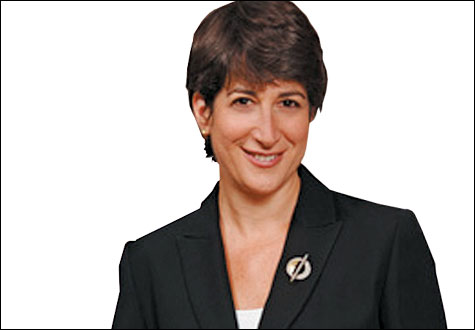Hunt, Lee, and Jobin-Leeds are unapologetic partisans, and their funding and support is often directed specifically to fellow Democrats.
Those three and others “are looking for ways to take leadership on the issue of making it more likely for women to get elected,” says Jobin-Leeds. And whatever they find that will work, she says, “there are donors who will fund it.”
“Massachusetts has finally developed a new-girls’ network,” says Lee. “Women are getting behind women candidates and providing the support they need.”
And many of them got behind Hillary Clinton. In January 2007, one of the New York senator’s first campaign events was a fundraiser in Boston co-hosted by four dozen women.
But it was not until the New Hampshire primary, on January 8, that the camaraderie of the campaign turned, for many of them, into a battle against sexism.
Clinton’s Granite State victory was enormous in historic as well as political terms: it was the first time in US history that a woman won a major-party presidential nominating contest. But the media coverage barely mentioned that fact, obsessing instead on whether Clinton’s teary-eyed performance over the weekend was responsible — and whether the waterworks were genuine or calculated.
“Most campaigns — and we’ve all been on a million of them — at the end of the day it was just a campaign,” says Feeney, Boston City Council president, and the only woman on that 13-seat body. “This was more than that.”

LEADER OF THE PACK: Ellen Zucker leads a group of women that could become the dominant political force in the state. |
Newfound camaraderie
In late March, Ellen Zucker — attorney and former president of the Massachusetts chapter of the National Organization for Women (NOW) — sent a frustrated e-mail to her friend and fellow Clinton supporter, former Democratic state senator Lois Pines. In it, she vented about party leaders calling for Clinton to drop out of the race, and about efforts to prevent a re-vote in Michigan and Florida, the nominating contests of which were not being counted by the national party.
By the following Tuesday, Zucker, Pines, and some 60-or-so more of the most powerful and influential Democratic women in the state had formed an organization, launched a Web site, held a press conference, and publicly called on Senators Ted Kennedy and John Kerry, and Governor Deval Patrick — all of whom were supporting Obama — to speak out against the treatment of Clinton.
“We told Kennedy, ‘You allowed Hillary to be demeaned, to be disrespected,’ ” says Feeney. Kerry took particular heat from women in the group who had themselves traveled the country in support of his presidential quest, and who felt that he had personally let them down.
This spontaneously formed “Zucker group,” which ultimately included between 75 and 100 people, remained active throughout the primaries, communicating by e-mail and twice-weekly conference calls. They demanded, and were given, meetings with Kerry, Kennedy, and Patrick, as well as with national Democratic Party chairman Howard Dean. They released an open letter of demands to the party that became a sensation in national Clinton circles.
But now, as they prepare for Denver, they have begun discussing how to carry the group forward past the inevitable end of the Clinton campaign. And many of them want to focus their energy now on getting women elected in Massachusetts.